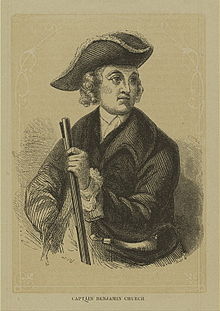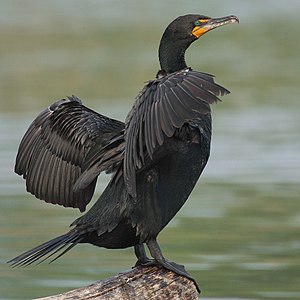Portal:Canada
| Showcase | Contents | Contributing |
Introduction
Canada is a country in North America. Its ten provinces and three territories extend from the Atlantic Ocean to the Pacific Ocean and northward into the Arctic Ocean, making it the world's second-largest country by total area, with the world's longest coastline. Its border with the United States is the world's longest international land border. The country is characterized by a wide range of both meteorologic and geological regions. It is a sparsely inhabited country of just over 41 million people, the vast majority residing south of the 55th parallel in urban areas. Canada's capital is Ottawa and its three largest metropolitan areas are Toronto, Montreal, and Vancouver.
Canada is a parliamentary democracy and a constitutional monarchy in the Westminster tradition. The country's head of government is the prime minister, who holds office by virtue of their ability to command the confidence of the elected House of Commons and is appointed by the governor general, representing the monarch of Canada, the ceremonial head of state. The country is a Commonwealth realm and is officially bilingual (English and French) in the federal jurisdiction. It is very highly ranked in international measurements of government transparency, quality of life, economic competitiveness, innovation, education and gender equality. It is one of the world's most ethnically diverse and multicultural nations, the product of large-scale immigration. Canada's long and complex relationship with the United States has had a significant impact on its history, economy, and culture.
A developed country, Canada has a high nominal per capita income globally and its advanced economy ranks among the largest in the world, relying chiefly upon its abundant natural resources and well-developed international trade networks. Recognized as a middle power, Canada's strong support for multilateralism and internationalism has been closely related to its foreign relations policies of peacekeeping and aid for developing countries. Canada is part of multiple international organizations and forums. (Full article...)
Featured article -
The Raid on Grand Pré was the major action of a raiding expedition conducted by the New England militia Colonel Benjamin Church against French Acadia in June 1704, during Queen Anne's War. The expedition was allegedly in retaliation for a French and Indian raid against the Massachusetts frontier community of Deerfield earlier that year. (Full article...)
Featured biography -
Brian David Hill (born 29 December 1982) is a S13 Canadian para-swimmer who has competed in the 2000, 2004, 2008, 2012 Summer Paralympics and the 2007 Parapan American Games. He had won five gold medals, three silver medals and 3 bronze medals in his international career. Hill started swimming as a child and competitive swimming at the age of nine. He has won the British Columbia Blind Sports Award and Athlete of the Year Award. (Full article...)
Selected panorama -
Panoramic view of Mont-Tremblant, Quebec
Credit: Acarpentier (Alain Carpentier)
National symbol -
The coat of arms of Canada (French: Armoiries du Canada), also known as the Royal Coat of Arms of Canada (French: armoiries royales du Canada) or, formally, as the Arms of His Majesty The King in Right of Canada (French: Armoiries de Sa Majesté Le Roi du Canada), is the arms of dominion of the Canadian monarch and, thus, also the official coat of arms of Canada. In use since 1921, it is closely modelled after the royal coat of arms of the United Kingdom, with French and distinctive Canadian elements replacing or added to those derived from the British version. (Full article...)
Selected vital article -
Canada, the world's second-largest country in total area, is dedicated to having an efficient, high-capacity multimodal transportation spanning often vast distances between natural resource extraction sites, agricultural and urban areas. Canada's transportation system includes more than 1,400,000 kilometres (870,000 mi) of roads, 10 major international airports, 300 smaller airports, 72,093 km (44,797 mi) of functioning railway track, and more than 300 commercial ports and harbours that provide access to the Pacific, Atlantic and Arctic oceans as well as the Great Lakes and the St. Lawrence Seaway. In 2005, the transportation sector made up 4.2% of Canada's GDP, compared to 3.7% for Canada's mining and oil and gas extraction industries. (Full article...)
Selected picture -
Current events
- September 9, 2024 –
- Finnish-Canadian sportswear mogul Peter Nygård is sentenced to 11 years in prison for sexual assault. (CBC News)
- September 4, 2024 –
- In Canada, New Democratic Party leader Jagmeet Singh announces that he has terminated the confidence and supply agreement his party made with Prime Minister Justin Trudeau's Liberal government in 2022. (CBC News)
- August 27, 2024 – Canada–Mexico relations, Mexico–United States relations
- Mexico suspends all interactions with the Canadian and American embassies in Mexico City due to claimed interference with its independence and internal affairs after both ambassadors criticized reform plans for members of the judiciary, up to and including Supreme Court justices, to be elected by popular vote. (Reuters)
- August 26, 2024 – Canada–China relations
- Canada announces a 100% tariff on imports of Chinese-made electric vehicles and a 25% tariff on Chinese steel and aluminum. (AP)
- August 22, 2024 – 2024 Canada railway shutdown
- Canadian National Railway and Canadian Pacific Kansas City lock out roughly 10,000 unionized railroad workers in Canada, leading to a railway stoppage that impacts many North American supply chains and may cost the economy of Canada C$341 million per day. (Reuters)
- In response to the railway stoppage, Canadian labour minister Steven MacKinnon refers the two disputes to binding arbitration. (CBC News)
Did you know -

- ... that Irene Parlby was one of The Famous Five, a group of women in Canada who fought for the right of women to be considered "persons"?
- ... that La Poutine Week is the world's largest poutine festival, with 700 restaurants serving 350,000 people?
- ... that Darryl Milburn made his Canadian Football League debut on his birthday, but did not appear in any other games that year?
- ... that celebrities who were interviewed in The Canadian Conspiracy were paid US$500?
- ... that Robert Home was sent by the British Army to Canada in 1864 to report on the defence of the frontier against the eventuality of an American invasion?
- ... that a radio station in Alberta fell afoul of Canadian content guidelines because new songs by Anne Murray were not Canadian enough?
- ... that Canadian brothers Graeme and Jacob Saunders learned to sail at the Chester Yacht Club, and campaigned a two-person dinghy in the 2016 Summer Olympics?
Featured list -
Canada is a federation that comprises ten provinces and three territories. Its government is structured as a constitutional monarchy and a parliamentary democracy, with a monarch as its sovereign and a Prime Minister as its head of government. Each of the country's provinces and territories also has a head of government, called premier in English. Collectively, the federal Prime Minister and provincial and territorial premiers are referred to as first ministers. In French, the term premier ministre is used in both the federal and provincial/territorial contexts. (Full article...)
Main articles
Associated Wikimedia
The following Wikimedia Foundation sister projects provide more on this subject:
-
Commons
Free media repository -
Wikibooks
Free textbooks and manuals -
Wikidata
Free knowledge base -
Wikinews
Free-content news -
Wikiquote
Collection of quotations -
Wikisource
Free-content library -
Wikiversity
Free learning tools -
Wikivoyage
Free travel guide -
Wiktionary
Dictionary and thesaurus






























